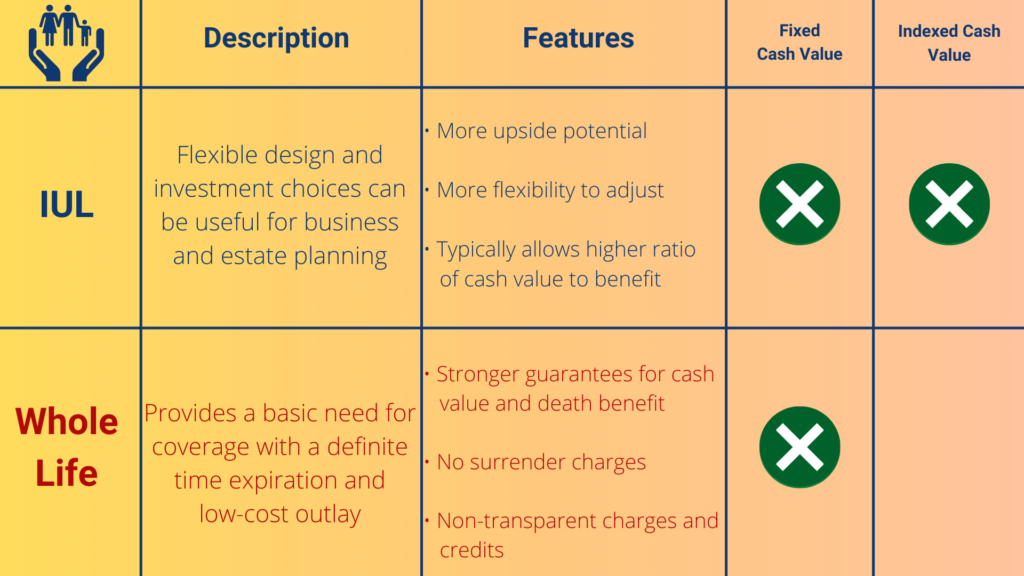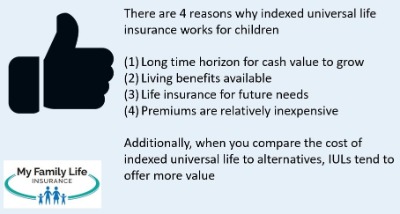All Categories
Featured
Table of Contents
Do they compare the IUL to something like the Lead Overall Supply Market Fund Admiral Shares with no load, an expense ratio (EMERGENCY ROOM) of 5 basis factors, a turnover ratio of 4.3%, and a remarkable tax-efficient document of circulations? No, they contrast it to some terrible proactively managed fund with an 8% tons, a 2% EMERGENCY ROOM, an 80% turn over ratio, and an awful record of short-term funding gain circulations.
Mutual funds often make yearly taxable circulations to fund proprietors, even when the worth of their fund has dropped in value. Common funds not just need income reporting (and the resulting yearly taxes) when the common fund is going up in worth, however can also enforce earnings tax obligations in a year when the fund has decreased in worth.
You can tax-manage the fund, harvesting losses and gains in order to lessen taxed circulations to the financiers, however that isn't somehow going to transform the reported return of the fund. The possession of common funds may require the common fund owner to pay estimated taxes (best iul insurance).

IULs are simple to position to make sure that, at the proprietor's fatality, the beneficiary is not subject to either earnings or estate taxes. The same tax obligation decrease techniques do not work nearly as well with shared funds. There are many, frequently pricey, tax obligation catches related to the timed trading of mutual fund shares, catches that do not put on indexed life insurance policy.
Possibilities aren't really high that you're mosting likely to undergo the AMT because of your mutual fund distributions if you aren't without them. The remainder of this one is half-truths at best. While it is true that there is no earnings tax due to your beneficiaries when they acquire the profits of your IUL plan, it is additionally true that there is no income tax due to your beneficiaries when they inherit a mutual fund in a taxed account from you.
Universal Life Cash Surrender Value
There are much better ways to avoid estate tax issues than acquiring investments with reduced returns. Common funds may cause revenue taxes of Social Protection advantages.

The growth within the IUL is tax-deferred and might be taken as tax obligation cost-free income using car loans. The plan proprietor (vs. the shared fund manager) is in control of his/her reportable income, hence enabling them to lower or perhaps remove the taxation of their Social Safety and security benefits. This set is wonderful.
Right here's an additional minimal concern. It's real if you acquire a common fund for claim $10 per share right before the distribution date, and it distributes a $0.50 distribution, you are after that mosting likely to owe tax obligations (possibly 7-10 cents per share) regardless of the reality that you have not yet had any gains.
In the end, it's really concerning the after-tax return, not exactly how much you pay in taxes. You are mosting likely to pay even more in taxes by making use of a taxed account than if you purchase life insurance policy. Yet you're likewise probably going to have more money after paying those tax obligations. The record-keeping demands for having mutual funds are significantly a lot more intricate.
With an IUL, one's documents are maintained by the insurance coverage business, copies of annual declarations are sent by mail to the proprietor, and distributions (if any kind of) are totaled and reported at year end. This one is likewise sort of silly. Naturally you should maintain your tax obligation documents in instance of an audit.
Universal Life Insurance Rate
All you have to do is shove the paper right into your tax obligation folder when it reveals up in the mail. Rarely a factor to get life insurance coverage. It's like this individual has never ever purchased a taxed account or something. Common funds are typically component of a decedent's probated estate.
In addition, they undergo the delays and costs of probate. The earnings of the IUL plan, on the various other hand, is always a non-probate distribution that passes beyond probate directly to one's called recipients, and is therefore exempt to one's posthumous lenders, undesirable public disclosure, or comparable hold-ups and prices.
Medicaid incompetency and lifetime income. An IUL can offer their owners with a stream of income for their whole lifetime, regardless of exactly how long they live.
:max_bytes(150000):strip_icc()/pros-cons-indexed-universal-life-insurance.asp_v1-e119226901bc464593a496c003551ea0.png)
This is useful when organizing one's affairs, and transforming possessions to earnings prior to an assisted living home confinement. Mutual funds can not be transformed in a comparable way, and are nearly constantly taken into consideration countable Medicaid assets. This is an additional silly one advocating that poor individuals (you recognize, the ones that need Medicaid, a government program for the poor, to spend for their nursing home) must use IUL rather than mutual funds.
Universal Life Death Benefit Options
And life insurance policy looks terrible when contrasted relatively against a retired life account. Second, people that have money to purchase IUL above and past their retirement accounts are going to need to be awful at managing cash in order to ever certify for Medicaid to spend for their retirement home expenses.
Persistent and incurable disease motorcyclist. All plans will enable an owner's simple accessibility to cash money from their plan, usually waiving any type of surrender penalties when such people endure a major ailment, need at-home care, or come to be restricted to an assisted living facility. Shared funds do not supply a similar waiver when contingent deferred sales charges still use to a mutual fund account whose owner requires to sell some shares to fund the costs of such a stay.
Universal Life Insurance Quote Calculator
You get to pay more for that benefit (cyclist) with an insurance coverage policy. Indexed universal life insurance supplies fatality advantages to the beneficiaries of the IUL owners, and neither the proprietor neither the beneficiary can ever before lose money due to a down market.
I absolutely do not need one after I get to monetary independence. Do I want one? On average, a buyer of life insurance coverage pays for the real price of the life insurance coverage advantage, plus the costs of the plan, plus the earnings of the insurance policy company.
Universal Benefits Corporation
I'm not entirely sure why Mr. Morais threw in the whole "you can't lose money" once again here as it was covered rather well in # 1. He simply intended to duplicate the very best marketing factor for these things I suppose. Again, you do not shed nominal bucks, but you can lose actual bucks, as well as face severe possibility cost because of reduced returns.

An indexed global life insurance policy owner might trade their policy for a totally various plan without setting off income taxes. A shared fund owner can stagnate funds from one shared fund company to one more without selling his shares at the former (therefore activating a taxable event), and buying new shares at the latter, usually subject to sales costs at both.
While it holds true that you can trade one insurance coverage for one more, the factor that individuals do this is that the first one is such an awful policy that also after buying a brand-new one and undergoing the very early, adverse return years, you'll still come out ahead. If they were offered the best policy the very first time, they should not have any kind of wish to ever before exchange it and experience the early, unfavorable return years once again.
Latest Posts
Iul Insurance Pros And Cons
Life Insurance Term Vs Universal
Life Insurance Stock Index